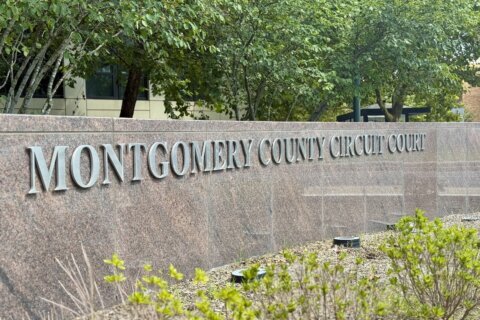Montgomery County, Maryland, Executive Marc Elrich has vetoed legislation that would give tax breaks to developers for building high-rises on top of Metro stations.
It marked the first time that Elrich, a former council member, vetoed legislation from his former colleagues.
“It’s about giving away a bunch of money to developers who want to make more money,” said Elrich of the legislation.
Council member Hans Riemer, who fought for the plan, said, “The county council proposal is a smart growth strategy.”
The bill passed by the county council earlier this month would exempt developers from having to pay property taxes for a period of 15 years.
Half of the high-rise units built at Metro stations would have to be rental units, and a quarter of the units would have to be MPDU’s, or “moderately priced dwelling units,” that people who earn less than 50% of the county’s area median income could afford.
Elrich sent a letter detailing his objections to the county council Friday.
Riemer argued that the proposal is badly needed and that right now, properties above Metro stations are “a showcase of empty acreage. We actually have vines and shrubs growing at the White Flint Metro station where there used to be a driving range.”
Currently, the county is not collecting property taxes on WMATA properties.
Riemer said developing the sites in a way that provides more housing with some units set aside for affordable unit could help spur the local economy.
“We need to be a more dynamic economy; we need to be a place where there’s more investment and progress and development. We’re not getting enough of that,” Riemer said.
Elrich wrote in his letter to the council that offering tax incentives at a time when the county projects steep revenue losses due to the coronavirus pandemic — estimated at $600 million — is a mistake.
Elrich said the council’s plan could cost the county more than $400 million.
“The idea that Montgomery County taxpayers should be subsidizing market-rate housing on top of Metro is a joke,” he said.
Riemer argued the county needs to do more to spur smart growth.
“Nobody can build high-rise development on those sites because it’s too expensive.”
Elrich said, “If we expect revenues to support our budgets, then somebody else has to be taxed to make up for the money that these people aren’t paying. In my mind, it’s just a sham.”
Riemer said he’s confident that the council can override Elrich’s veto. The bill originally passed 7-2. In order to override a veto by the county executive, the council needs six votes.








